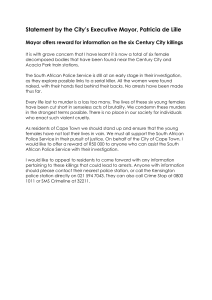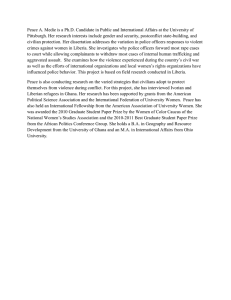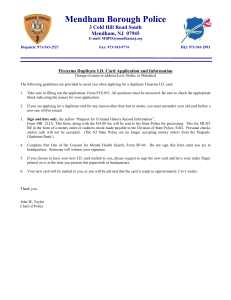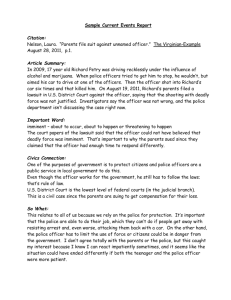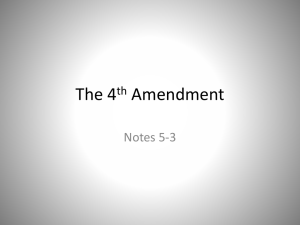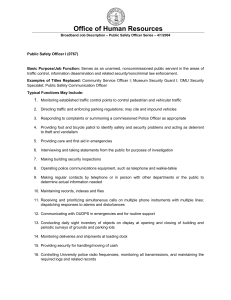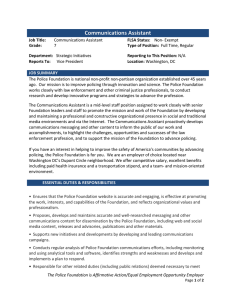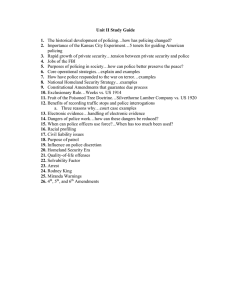Pavel Himl: “Sine respectu personarum.” The Creation of a New
advertisement
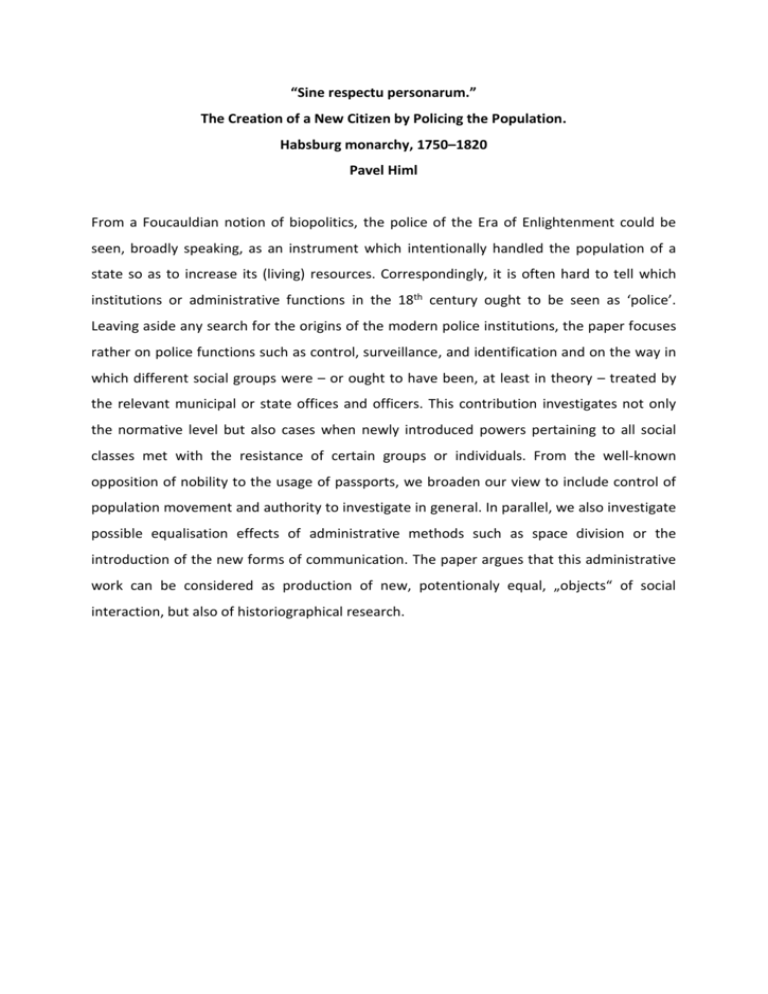
“Sine respectu personarum.” The Creation of a New Citizen by Policing the Population. Habsburg monarchy, 1750–1820 Pavel Himl From a Foucauldian notion of biopolitics, the police of the Era of Enlightenment could be seen, broadly speaking, as an instrument which intentionally handled the population of a state so as to increase its (living) resources. Correspondingly, it is often hard to tell which institutions or administrative functions in the 18th century ought to be seen as ‘police’. Leaving aside any search for the origins of the modern police institutions, the paper focuses rather on police functions such as control, surveillance, and identification and on the way in which different social groups were – or ought to have been, at least in theory – treated by the relevant municipal or state offices and officers. This contribution investigates not only the normative level but also cases when newly introduced powers pertaining to all social classes met with the resistance of certain groups or individuals. From the well-known opposition of nobility to the usage of passports, we broaden our view to include control of population movement and authority to investigate in general. In parallel, we also investigate possible equalisation effects of administrative methods such as space division or the introduction of the new forms of communication. The paper argues that this administrative work can be considered as production of new, potentionaly equal, „objects“ of social interaction, but also of historiographical research.











